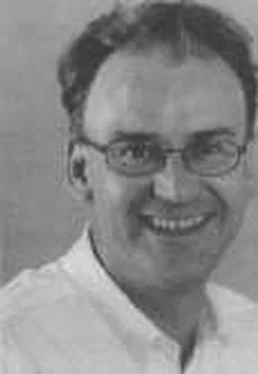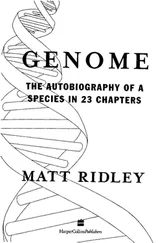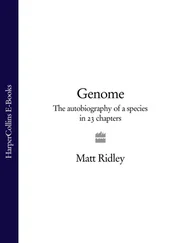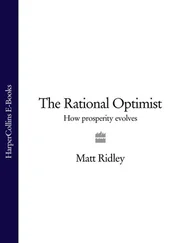The Queen - Matt Ridley
Здесь есть возможность читать онлайн «The Queen - Matt Ridley» весь текст электронной книги совершенно бесплатно (целиком полную версию без сокращений). В некоторых случаях можно слушать аудио, скачать через торрент в формате fb2 и присутствует краткое содержание. Жанр: Старинная литература, на английском языке. Описание произведения, (предисловие) а так же отзывы посетителей доступны на портале библиотеки ЛибКат.
- Название:Matt Ridley
- Автор:
- Жанр:
- Год:неизвестен
- ISBN:нет данных
- Рейтинг книги:4 / 5. Голосов: 1
-
Избранное:Добавить в избранное
- Отзывы:
-
Ваша оценка:
- 80
- 1
- 2
- 3
- 4
- 5
Matt Ridley: краткое содержание, описание и аннотация
Предлагаем к чтению аннотацию, описание, краткое содержание или предисловие (зависит от того, что написал сам автор книги «Matt Ridley»). Если вы не нашли необходимую информацию о книге — напишите в комментариях, мы постараемся отыскать её.
Matt Ridley — читать онлайн бесплатно полную книгу (весь текст) целиком
Ниже представлен текст книги, разбитый по страницам. Система сохранения места последней прочитанной страницы, позволяет с удобством читать онлайн бесплатно книгу «Matt Ridley», без необходимости каждый раз заново искать на чём Вы остановились. Поставьте закладку, и сможете в любой момент перейти на страницу, на которой закончили чтение.
Интервал:
Закладка:
Throughout the world of animals, individuals are fighting individuals, whether of the same species or of another. And indeed, the closest competitor a creature is ever likely to meet is a member of its own species. Natural selection is not going to pick genes that help gazelles survive as a species but hurt the chances of individuals—because such genes will be wiped out long before they can show their benefits. Species are not fighting species as nations battle other nations.
Wynne Edwards believed fervently that animals often did things for the species, or at least for the group in which they lived.
For example, he thought that seabirds chose not to breed when their numbers were high in order to prevent too much pressure on the food supply. The result of Wynne Edwards 's book was that two factions formed: the group selectionists, who argued that much of animal behavior was informed by the interests of the group, not the individual, and the individual selectionists, who argued that individual interests always triumphed. The group selectionist argument is inherently appealing—we are immersed in the ethic of team spir-it and charity. It also seemed to explain animal altruism. Bees die as THE ENIGMA
::: 35:::
they sting, trying to save the hive; birds warn each other of predators or help to feed their young siblings; even human beings are prepared to die in acts of selfless heroism to save others ' lives. But as we shall see, the appearance is misleading. Animal altruism is a myth. Even in the most spectacular cases of selflessness it turns out that animals are serving the selfish interests of their own genes—if sometimes being careless with their bodies.
THE REDISCOVERY OF THE INDIVIDUAL
If you attend a meeting of evolutionary biologists somewhere in America, you might be lucky and spot a tall, gray-whiskered, smiling man bearing a striking resemblance to Abraham Lincoln, standing rather diffidently at the back of the crowd. He will probably be surrounded by a knot of admirers, hanging on his every word—for he is a man of few words. A whisper will go around the room:
"George is here." You will sense from people's reactions the presence of greatness.
The man in question is George Williams, who has been a quiet, bookish professor of biology at the State University of New York at Stony Brook on Long Island for most of his career. He has done no memorable experiments and has made no startling discovery. Yet he is the progenitor of a revolution in evolutionary biology almost as profound as Darwin 's. In 1966, irritated by Wynne Edwards and other exponents of group selection, he spent a summer vacation writing a book about how he thought evolution worked. Called Adaptation and Natural Selection, that book still towersover biology like a Himalayan peak. It did for biology what Adam Smith had done for economics: It explained how collective effects could flow from the actions of self-interested individuals."
In the book Williams exposed the logical flaws in group selection with unanswerable simplicity. The few evolutionists who had stuck to individual selection all along, such as Ronald Fisher, J. B. S. Haldane, and Sewall Wright, were vindicated." The ones who had confused species and individual, such as Julian Huxley,
::: 36 :::
The Red Queen
were eclipsed. 16Within a few years of Williams 's book, Wynne Edwards was effectively defeated, and almost all biologists agreed that no creature could ever evolve the ability to help its"species at the expense of itself. Only when the two interests coincided would it act selflessly.
This was disturbing. It seemed at first to be a very cruel and heartless conclusion to reach, particularly in a decade when economists were tentatively celebrating the discovery that the ideal of helping society could persuade people to pay high taxes to support welfare. Society, they said, need not be based on tempering the greed of individuals but on appealing to their better natures. And here were biologists coming to exactly the opposite conclusion about animals, depicting a harsh world in which no animal ever sacrificed its own ambition to the need of the team or the group: Crocodiles would eat one another 's babies even on the brink of extinction.
Yet that was not what Williams said. He knew full well that individual animals often cooperate and that human society is not a ruthless free-for-all. But he also saw that cooperation is nearly always between close relatives—mothers and children, sister worker bees—or that it is practiced where it directly or eventually benefits the individual. The exceptions are few indeed. This is because where selfishness brings higher rewards than altruism, selfish individuals leave more descendants, so altruists inevitably become extinct. But where altruists help their relatives, they are helping those who share some of their genes, including whatever genes had caused them to be altruistic. So without any conscious intention on the part of individuals, such genes spread."
But Williams realized that there was one troubling exception to this pattern: sex. The traditional explanation for sex, the Vicar of Bray theory, was essentially group selectionist. It demanded that an individual altruistically share its genes with those of another individual when breeding because if it did not, the species would not innovate and would, a few hundred thousand years later, be outcompeted by other species that did. Sexual species, it said, were better off than asexual species.
But were sexual individuals better off than asexual ones? If THE ENIGMA
::: 37 :::
not, sex could not be explained by the Williams " selfish " school of thought. Therefore, either there was something wrong with the selfish theories and true altruism could indeed emerge, or the traditional explanation of sex was wrong. And the more Williams and his allies looked, the less sense sex seemed to make for the individual as opposed to the species.
Michael Ghiselin of the California Academy of Sciences in San Francisco was at the time engaged in a study of Darwin 's work and was struck by Darwin 's own insistence on the primacy of the struggle between individuals rather than the struggle between groups: But Ghiselin, too, began thinking about how sex seemed such an exception to this. He posed the following question: How could a gene for sexual reproduction spread at the expense of an asexual gene? Suppose all members of a species were asexual but one day one pair of them invented sex. What benefit would it bring? And if it brought no benefit, why would it spread? And if it could not spread, why were so many species sexual? Ghiselin could not see how the new sexual individuals could possibly leave behind more offspring than the old asexual ones. Indeed, surely they would leave fewer because, unlike their rivals, they had to waste time finding each other, and one of them, the male, would not produce babies at all.1e
John Maynard Smith, an engineer-turned-geneticist at the University of Sussex in England, with a penetrating and somewhat playful mind that had been trained by the great neo-Darwinist J. B. S. Haldane, answered Ghiselin 's question without solving his dilemma. He said that a sexual gene could spread only if it doubled the number of offspring an individual could have, which seemed absurd. Suppose, he said, turning Ghiselin 's thought around, that in a sexual species one day a creature decides to forgo sex and put all of its genes into its own offspring, taking none from its mate. It would then have passed twice as many genes on to the next generation as its rivals had. Surely it would be at a huge advantage. It would contribute twice as much to the next generation and would soon be left in sole possession of the genetic patrimony of the species.19
Читать дальшеИнтервал:
Закладка:
Похожие книги на «Matt Ridley»
Представляем Вашему вниманию похожие книги на «Matt Ridley» списком для выбора. Мы отобрали схожую по названию и смыслу литературу в надежде предоставить читателям больше вариантов отыскать новые, интересные, ещё непрочитанные произведения.
Обсуждение, отзывы о книге «Matt Ridley» и просто собственные мнения читателей. Оставьте ваши комментарии, напишите, что Вы думаете о произведении, его смысле или главных героях. Укажите что конкретно понравилось, а что нет, и почему Вы так считаете.












